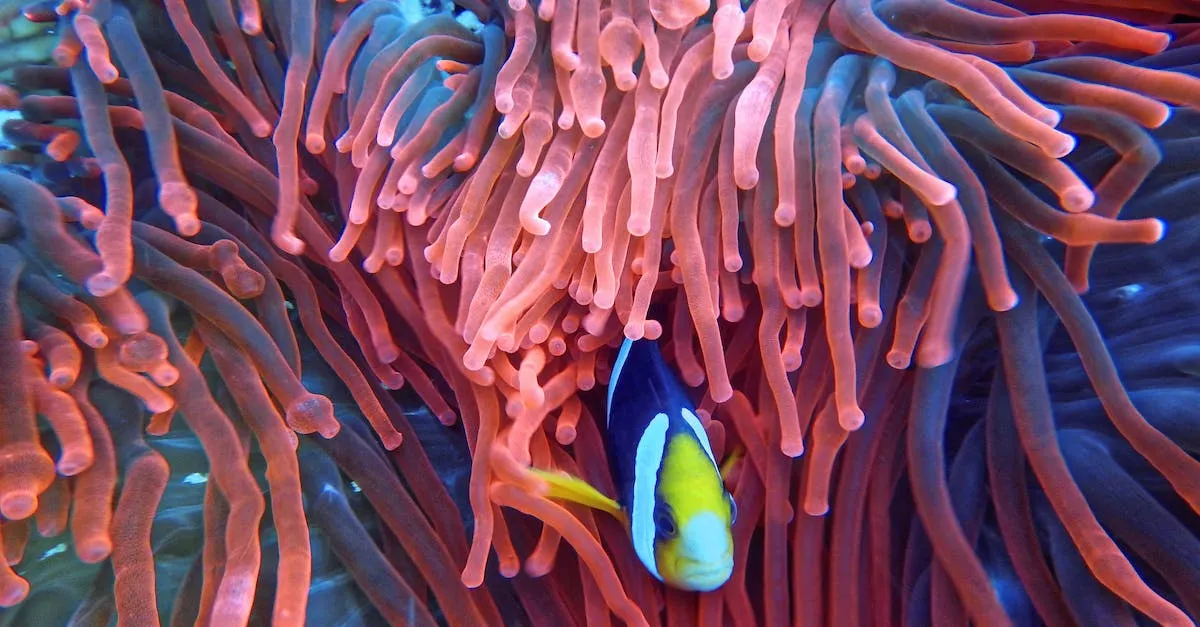Marine Science Vs Marine Biology: What’S The Difference?
Marine environments cover over 70% of the planet, yet much of this realm remains a mystery. If you’re interested in studying the oceans and marine life, you may be wondering whether to pursue marine science or marine biology.
If you’re short on time, here’s a quick answer to your question: Marine science is the broad, interdisciplinary study of marine environments and organisms. Marine biology focuses specifically on the animals and plants that live in marine habitats.
In this comprehensive guide, we’ll dive deeper into the differences between these two fascinating fields to help you determine which is the best fit for your interests and career goals.
Defining Marine Science
Marine Science is a broad field of study that focuses on understanding and exploring the various aspects of marine environments. It involves the examination of marine organisms, their habitats, and the interactions between them and their surroundings.
This multidisciplinary field combines knowledge from several scientific disciplines to better comprehend the complexities of the ocean and its ecosystems.
Studies all aspects of marine environments
Marine Science encompasses a wide range of subjects, including marine biology, oceanography, marine geology, and marine chemistry. These disciplines work together to study the physical, chemical, and biological characteristics of the ocean.
Marine scientists investigate the biodiversity of marine life, the geological processes shaping the seafloor, the chemical composition of seawater, and the physical properties of waves and currents.
They also explore oceanic phenomena such as coral reef ecosystems, deep-sea trenches, and hydrothermal vents. By studying all aspects of marine environments, scientists can gain a comprehensive understanding of the complex interactions and interdependencies within these ecosystems.
Encompasses many scientific disciplines
One of the distinguishing features of Marine Science is its integration of various scientific disciplines. Marine biologists study marine organisms and their behavior, while oceanographers investigate the physical properties of the ocean, such as its currents, tides, and temperature.
Marine geologists focus on the geological processes shaping the ocean floor, and marine chemists analyze the chemical composition of seawater.
By collaborating across disciplines, marine scientists can develop a holistic understanding of marine environments and the challenges they face. This interdisciplinary approach is crucial in addressing issues like climate change, pollution, and overfishing, which require comprehensive solutions and expertise from multiple fields.
Focuses on interactions between systems
Marine Science places a strong emphasis on studying the interactions between different systems within the marine environment. These systems include physical, chemical, biological, and geological processes that are interconnected and influence each other.
For example, scientists might examine how changes in ocean temperature affect the distribution and behavior of marine species. They may also investigate how ocean currents transport nutrients and impact the productivity of marine ecosystems.
Understanding these interactions is vital for predicting the effects of climate change, identifying ecological imbalances, and developing strategies for sustainable marine resource management.
For further information on Marine Science and its various disciplines, you can visit websites such as marinecareers.net and marinespecies.org.
Defining Marine Biology
Marine biology is a branch of the biological sciences that focuses on the study of marine organisms. It is a fascinating field that explores the diverse life forms that inhabit our oceans and other bodies of water.
Marine biologists seek to understand the physiology, behavior, ecology, and evolution of these organisms, as well as their interactions with their environment.
Studies marine organisms specifically
Unlike general biology, which covers a wide range of organisms from plants to animals, marine biology specifically focuses on the study of organisms that live in saltwater environments. This includes a vast array of organisms, such as fish, corals, whales, dolphins, sea turtles, crustaceans, and microorganisms like plankton.
By studying these organisms, marine biologists gain insights into their adaptations, life cycles, and the unique challenges they face in their marine habitats.
Branch of biological sciences
Marine biology is a branch of the broader field of biological sciences. It draws upon principles and methodologies from various scientific disciplines, including genetics, ecology, physiology, and evolutionary biology.
By applying these disciplines to the study of marine organisms, scientists can better understand the intricate web of life in our oceans and make important contributions to the conservation and management of marine ecosystems.
Focuses on physiology, behavior, ecology, etc.
One of the key focuses of marine biology is understanding the physiological and behavioral adaptations of marine organisms. For example, scientists may study how marine mammals are able to withstand the pressures and temperatures of deep-sea environments, or how fish navigate and communicate in the vast expanse of the ocean.
Marine biologists also investigate the ecological roles of different organisms and how they interact with each other and their environment. This knowledge is crucial for the conservation and sustainable use of marine resources.
Overlap Between the Fields
Marine science and marine biology are closely related fields that involve the study of aquatic environments. While there are some differences between the two, there is also a significant overlap in their areas of research and study.
Both involve aquatic research
Both marine science and marine biology focus on studying various aspects of the ocean, including its organisms, ecosystems, and physical properties. Marine science encompasses a broader range of topics, including oceanography, marine geology, and marine chemistry.
Marine biology, on the other hand, specifically focuses on the study of marine organisms and their interactions with their environment.
In both fields, researchers may conduct fieldwork, collect samples, and analyze data to gain a better understanding of the marine environment. Whether it’s studying the behavior of marine mammals or investigating the effects of climate change on coral reefs, scientists in both marine science and marine biology are dedicated to advancing our knowledge of the ocean.
Study similar topics like marine ecosystems
One of the areas where marine science and marine biology overlap is in the study of marine ecosystems. Both fields aim to understand the complex relationships between organisms and their environment within these ecosystems.
They investigate topics such as food webs, biodiversity, and the impacts of human activities on marine life.
For example, researchers in both fields might study the effects of pollution on coral reefs or examine the role of phytoplankton in global carbon cycling. By studying these topics from different perspectives, marine scientists and marine biologists can collaborate to gain a more comprehensive understanding of marine ecosystems and develop strategies for their conservation and management.
Collaboration between scientists in the two fields
Collaboration between scientists in marine science and marine biology is crucial for advancing knowledge and addressing complex issues facing our oceans. Both fields bring unique expertise and perspectives to the table, and by working together, they can tackle complex research questions and develop innovative solutions.
For example, a marine biologist studying the behavior of a specific marine species might collaborate with a marine scientist who specializes in oceanographic modeling to better understand how physical factors, such as currents and temperature, influence the distribution and abundance of that species.
This interdisciplinary collaboration allows for a more holistic approach to studying marine ecosystems and their inhabitants.
Educational Requirements
Marine science degrees at undergraduate and graduate level
For those interested in pursuing a career in marine science, there are various educational pathways to consider. At the undergraduate level, many universities offer bachelor’s degrees in marine science.
These programs typically provide a broad foundation in the field, covering topics such as oceanography, marine ecology, and marine geology. Students can expect to take courses in biology, chemistry, physics, and mathematics, as well as specialized marine science courses.
At the graduate level, there are also opportunities to further specialize in marine science. Master’s and doctoral programs in marine science allow students to delve deeper into specific areas of interest, such as marine conservation, marine biotechnology, or marine policy.
These programs often involve conducting original research and may require the completion of a thesis or dissertation.
Marine biology typically requires graduate level education
Marine biology, on the other hand, typically requires graduate level education. While there are some bachelor’s degree programs in marine biology, many students choose to pursue a bachelor’s degree in biology or a related field before specializing in marine biology at the graduate level.
This is because marine biology is a highly specialized field that requires a deep understanding of the biological sciences and the unique challenges of studying marine organisms.
Graduate programs in marine biology offer advanced coursework and research opportunities that allow students to explore topics such as marine ecology, marine genetics, and marine physiology. These programs often emphasize hands-on field work and laboratory research, giving students the opportunity to study marine organisms in their natural habitats and conduct experiments to better understand their biology and behavior.
Hands-on research and field work opportunities
Both marine science and marine biology programs offer students valuable hands-on research and field work opportunities. These experiences allow students to apply the knowledge and skills they have learned in the classroom to real-world situations and gain practical experience in the field.
Many universities with marine science or marine biology programs have research vessels or field stations where students can participate in field trips and conduct research projects. These hands-on experiences provide students with a deeper understanding of marine ecosystems and the scientific methods used to study them.
Additionally, students may have the opportunity to work alongside faculty members on research projects or intern at organizations involved in marine science or conservation. These experiences can be invaluable for building professional networks and gaining practical skills that can be applied to future careers in marine science or marine biology.
Career Paths
Marine science offers careers in research, policy, education, etc.
Marine science encompasses a wide range of disciplines and offers diverse career opportunities. Those interested in research can pursue careers as marine scientists, studying various aspects of the ocean ecosystem, including marine organisms, oceanography, and climate change.
These scientists conduct experiments, collect data, and analyze samples to contribute to our understanding of the marine environment. Marine science also offers career paths in policy and management, where professionals work to develop and implement regulations to protect marine resources and ensure sustainable practices.
Additionally, marine science offers opportunities in education, where individuals can teach and inspire the next generation of marine scientists.
Marine biologists work in conservation, fisheries management, pharmaceuticals, etc.
Marine biology focuses specifically on the study of marine organisms and their interactions with the environment. Marine biologists play a crucial role in conservation efforts by studying endangered species, monitoring populations, and developing strategies to protect marine biodiversity.
They also work in fisheries management, helping to sustainably manage fish populations and ensure responsible fishing practices. Marine biologists may also work in the pharmaceutical industry, researching marine organisms for potential medicinal uses.
The field of marine biology offers exciting opportunities to explore the wonders of marine life and contribute to its conservation and sustainable use.
Opportunities with government agencies, nonprofits, universities, and private companies
Both marine science and marine biology offer a wide range of career opportunities across various sectors. Graduates in these fields can find employment in government agencies such as the National Oceanic and Atmospheric Administration (NOAA) or the Environmental Protection Agency (EPA), where they can contribute to policy development and scientific research.
Nonprofit organizations like the Ocean Conservancy and Oceana also provide opportunities for marine science and biology professionals to work on conservation projects and advocate for sustainable practices.
Universities and research institutions offer positions in academia and research, allowing individuals to further their knowledge and contribute to scientific advancements. Private companies, such as pharmaceutical companies and environmental consulting firms, may also hire marine science and biology experts for research and development projects.
For more information on career paths in marine science and marine biology, you can visit websites like marinecareers.net or mbari.org that provide valuable insights and resources for aspiring professionals in these fields.
Conclusion
While marine science and marine biology have some overlaps, they are distinct fields with different areas of emphasis. Marine science takes a broad approach to studying the oceans, while marine biology has a narrower focus on marine life.
By weighing the key differences covered here, you can determine which field aligns best with your interests and professional aspirations. Whether you choose to set sail as a marine scientist or marine biologist, an exciting career full of discovery awaits you on the ocean frontier!







